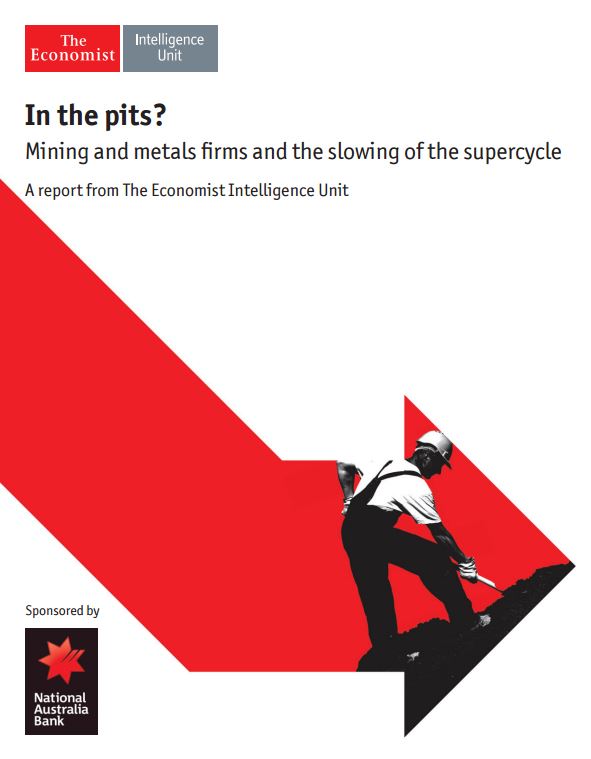Click to download
Key findings
- The supercycle is not over—it’s just not as super: The Economist Intelligence Unit believes continued growth in China (slower, but from a larger base), ongoing global urbanisation, and structural factors such as higher energy and extraction costs will continue to support prices in the medium term.
- Counter-cyclical capital expenditure could prepare firms for the next upsurge in demand: Firms must be more cautious and focused about the number and type of investments they make—and CAPEX is falling as a result. But some miners are investing countercyclically in preparation for an expected upturn. In addition, remaining resources are deeper and more costly to extract and will require more investment to prepare firms for the next upsurge in demand.
- The era of the megadeal is over; mid-cycle consolidation will drive a more subdued M&A market: Firms in the metals and mining sector have entered a period in which viable deals are scarce, divestments hard to offload, and further large-scale consolidation a non-starter for both financial and political reasons. But further consolidation can be expected among junior and mid-cap firms that need to shore up their balance sheets or find partners for projects they are no longer able to finance on their own.
- Diversification into mid-cycle commodities is an increasingly attractive option: Buying assets in diversified commodities is one way to gain exposure to the next supercycle, likely to be driven by urban populations’ insatiable demand for manufactured goods, energy and soft commodities.
- Vertical integration and strategic collaboration can also add value: In recent years the industry has seen more end-users and trading houses moving down the value chain into origination and producers moving up the chain into trading in order to capture more value.
- How miners manage the post-boom transition internally will determine how they fare when prices pick up: Many mining companies have replaced their CEOs in recent months; new management teams face a delicate balance of protecting balance of protecting balance sheets, satisfying shareholders and preparing the ground for future growth.
- “Pit to port” innovation is necessary even in a downturn: With greater investor pressure to return cash, speculative spending on innovation is likely to be the first thing to be cut. But with resources becoming ever more costly to extract, those that do innovate “from pit to port” will have a competitive advantage in future.





